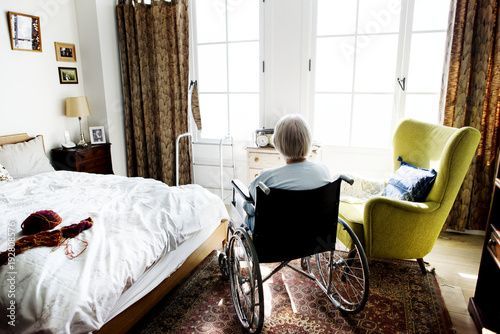What to Do If You Suspect Nursing Home Neglect
On behalf of Harper, Evans, Hilbrenner & Netemeyer
Recognizing and Addressing the Shadow of Neglect in Elder Care Facilities

In recent years, the topic of nursing home neglect has become increasingly critical, with a growing population of elderly individuals relying on long-term care facilities. This article aims to shed light on the alarming issue of neglect and Abuse in nursing homes, offering guidance on how to identify and address it effectively. According to the National Center on Elder Abuse, it's estimated that approximately 95% of nursing home residents have experienced or witnessed neglect. Additionally, the Centers for Disease Control and Prevention (CDC) reports that over two million Americans reside in long-term care facilities, emphasizing the extensive impact of this issue.
Understanding Nursing Home Abuse and Neglect
Nursing home abuse and neglect encompass a range of harmful actions directed towards elderly residents in long-term care facilities. Abuse in these settings can manifest in several forms:
- Physical Abuse: This involves intentional infliction of physical harm, such as hitting, slapping, or pushing.
- Emotional Abuse: Emotional or psychological Abuse can be more insidious, involving verbal assaults, threats, humiliation, or isolation.
- Sexual Abuse: Non-consensual sexual contact or exploitation falls under this category.
- Financial Abuse: involves illegal or unauthorized use of a resident's funds, property, or assets.
- Neglect: Neglect refers to the failure to meet the basic needs or provide adequate care for a resident.
Warning Signs of Nursing Home Abuse or Neglect
Identifying the signs of nursing home abuse or neglect is vital for safeguarding the well-being of elderly residents. These signs can be categorized into physical, emotional, sexual abuse, financial exploitation, and general neglect.
- Physical Abuse Signs: Unexplained injuries like bruises, cuts, or fractures; frequent accidents or reports of falls; reluctance to explain injuries.
- Emotional Abuse Indicators: Changes in behavior or mood, such as withdrawal, depression, or anxiety; fear or apprehension around certain staff members; unexplained changes in alertness.
- Signs of Sexual Abuse: Bruises around the breasts or genital area; unexplained sexually transmitted diseases; torn or stained clothing; and behavioral changes like withdrawal or aggression.
- Indicators of Financial Exploitation: Sudden changes in financial situations; unexplained withdrawals or charges; missing personal belongings; changes in wills or power of attorney without clear explanation.
- Signs of Neglect: Poor personal hygiene or unsanitary living conditions; unattended medical needs; malnutrition or dehydration; bedsores or unexplained weight loss.
It's crucial to remember that these signs might not always be evident or directly linked to Abuse, but they warrant further investigation.
Reporting Nursing Home Abuse or Neglect
If you suspect nursing home abuse or neglect, it's important to take immediate action:
- Document the Evidence: Take notes of any signs or incidents of abuse or neglect.
- Speak to the Elderly Resident: If possible, gently ask the resident about their care and well-being.
- Report to Facility Management: Raise concerns with the nursing home's administration or management.
- Contact Law Enforcement: In cases of immediate danger or severe Abuse, contact local law enforcement.
- Use Hotlines and Resources: Utilize state-specific hotlines and national resources like the Eldercare Locator (1-800-677-1116) to report abuse.
- Seek Legal Counsel: Consult with a lawyer specializing in elder law for guidance on legal actions and protecting the resident's rights.
How a Lawyer Can Help in Nursing Home Neglect Cases
In cases of nursing home neglect, a lawyer can play a crucial role in advocating for the rights of the resident and seeking justice. Lawyers specializing in elder law or personal injury can:
- Evaluate the Case: Assess the situation to determine if there has been a violation of the resident's rights or laws.
- Investigate and Gather Evidence: Collect medical records, eyewitness accounts, and other pertinent information to build a strong case.
- Types of Damages and Compensation: Seek compensation for medical expenses, pain and suffering, and, in some cases, punitive damages for egregious neglect.
- Filing a Lawsuit: Guide families through the legal process, including filing a lawsuit against the nursing home if necessary.
- Negotiation and Litigation: Represent the resident in negotiations with nursing homes or insurance companies, and litigate the case in court if a settlement cannot be reached.
The outcomes of such cases can vary, but the goal is always to secure the best possible care for the resident and compensation for any harm suffered.
Protecting Our Elders
The issue of nursing home neglect is a pressing concern that demands attention and action. Families and friends of nursing home residents must remain vigilant, recognize the signs of abuse or neglect, and understand the legal rights that protect these vulnerable individuals. By staying informed and proactive, we can help ensure that our loved ones receive the care and respect they deserve in their twilight years. If you suspect abuse or neglect, do not hesitate to report it and seek professional advice to safeguard the well-being of your loved one.

